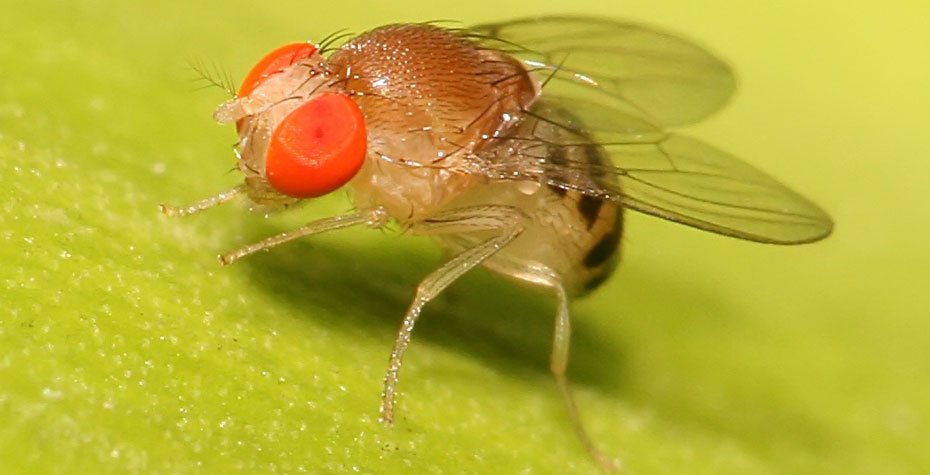Undergraduate Science Journal "Impulse" Presents Wellesley Team's Work on Sleep Disorder

Four Wellesley neuroscience majors recently published a paper in an undergraduate neuroscience journal. Mika Asaba ’14, Adrian Bates ’13, Kitaia Dao ’14, and Mika Maeda ’14 reported the effects of a sleep disorder on memory acquisition for Impulse.
The project began in September 2012 in Assistant Professor of Neuroscience Sharon Gobes’ course, Neuroscience of Sleep, Learning & Memory (NEUR325), where she assigned students the task of creating an original experiment to perform during the laboratory component of the course. Gobes’ parameters: The experiment had to touch on an issue of sleep, learning and memory; the students needed to use fruit fly models; and the experiment had to be feasible to accomplish in a Wellesley-style environment.
While researching literature on the subject of sleep disorders for that project, the students discovered a new fruit fly (Drosophila melanogaster) model developed only last year at Emory University. The fly mutant exhibits the same restless leg syndrome (RLS) behavior as humans do and, unlike with human subjects, researchers will be able to examine the underlying neural mechanisms and genetics of the disease in the fly model.
Excited about the possibilities of the model, Asaba, Bates, Dao, and Maeda crafted their experiment with help from various faculty members, including Gobes and Instructor of Neuroscience Laboratory Ginny Quinan.
In their paper, titled “Restless leg syndrome model Drosophila melanogaster show successful olfactory learning and 1-day retention of the acquired memory,” the four sought to study how sleep plays a role in learning and memory processes. The Wellesley project investigated the relationship between disturbed sleep patterns and cognitive functioning in a Drosophila (i.e., fly) model of Restless Leg Syndrome. In their study, the students hypothesized that the flies with RLS would be worse than typical-sleeping flies at learning and retaining an association. They found that flies with RLS did indeed show reduced sleep at night, but surprisingly, the RLS flies were as good or better than the control flies at learning and memorizing a task.
Their work is significant, says Gobes, because they are the first to “extend the original research [from Emory] and look at an actual behavior that could be affected by the disease RLS.”
After Wellesley, Asaba seeks to pursue research in cognitive neuroscience, with interests in cognitive development, self-understanding, and morality. Bates graduated in May and is currently pursuing research and working in animal care, and she hopes to enter a Ph.D./DVM program at Colorado State University in 2015. Dao seeks to work as a business analyst or program manager in the field of international development with a focus on poverty alleviation. Maeda is interested in pursuing research in social cognition, with a particular interest in autism spectrum disorders.
In this project, Gobes says, “They had a lot of scientific freedom: Whatever they wanted to investigate, they could. In that sense, it was a really valuable experience for the students, and much more rewarding than a traditional laboratory experience.”
Published by Appalachian State University, Impulse is the first international, online neuroscience journal for undergraduate publications.
